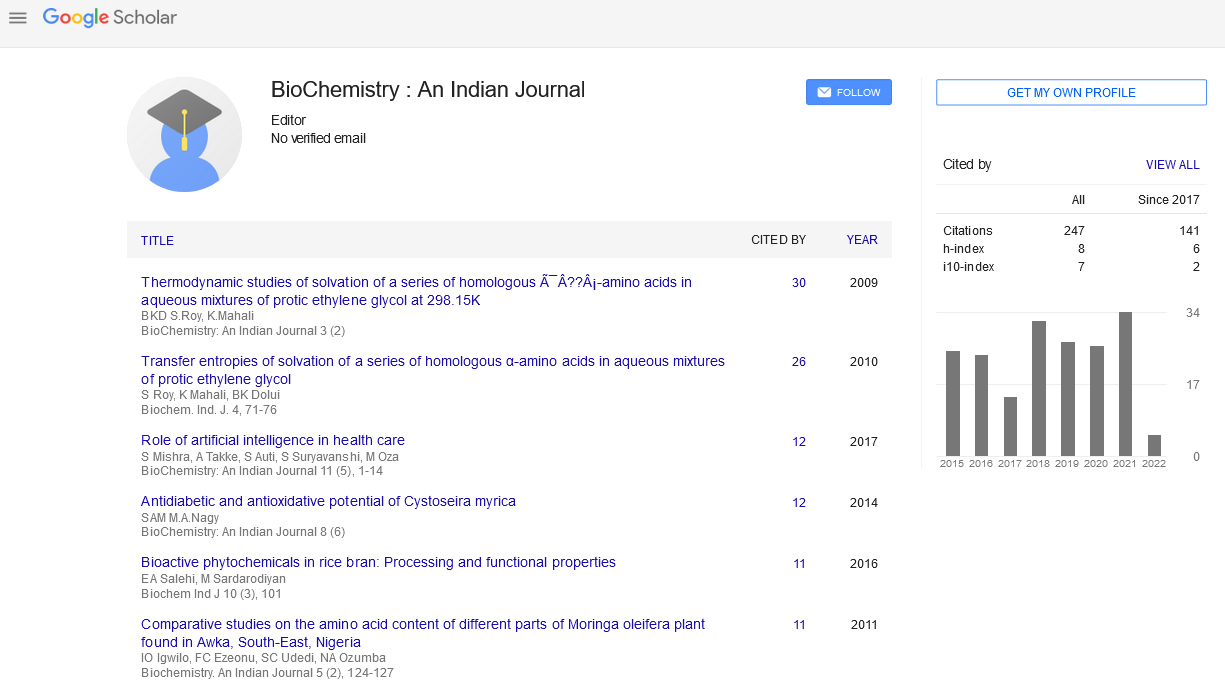Abstract
Serum Adiponectin and Oxidative Stress Levels in Type 2 Diabetes Mellitus Patients
Author(s): Shagufta HasanBackground: Serum adiponectin is a protein that is produced by adipocytes and the kidney. Some recent studies discovered that increased serum adiponectin levels for early detection of nephropathy in Type 2 Diabetes Mellitus (T2DM). This protein has anti-diabetic, anti-oxidative, and anti-inflammatory properties. Increased oxidative stress in T2DM patients causes some micro and macrovascular complications, most notably kidney dysfunction. Estimating serum adiponectin levels may aid in the early detection of nephropathy in T2DM patients, as well as the role of this protein complex. As a result, we planned to look at serum adiponectin rather than urinary micro albuminuria as a predictor of nephropathy in T2DM patients.
Methods: This is a case control study that included 100 T2DM patients divided into two groups based on albumin to creatinine ratio, T2DM patients with normoalbuminuria (N=50) and micro albuminuria (N=50), as well as 50 age and gender matched healthy controls. Urinary albuminuria was determined using the Albumin Creatinine Ratio (ACR), serum adiponectin Enzyme Linked Immunosorbent Assay (ELISA), and serum MDA using the TBARS Method. The mean serum adiponectin levels (8.24 2.36, 19.43 3.08, and 23.94 8.40) in T2DM patients with normoalbuminuria and microalbuminuria, respectively, were significantly higher. Serum MDA levels were also higher in three groups of T2DM patients when compared to healthy controls. Serum adiponectin levels were significantly higher in T2DM with normoalbuminuria compared to T2DM with microalbuminuria and T2DM with micro albuminuria.
Conclusion: Serum adiponectin levels are elevated in T2DM patients with normoalbuminuria, and these levels are linked to renal insufficiency. As a result, this study suggests that adiponectin estimation may be useful for early detection and progression of nephropathy in T2DM patients.

